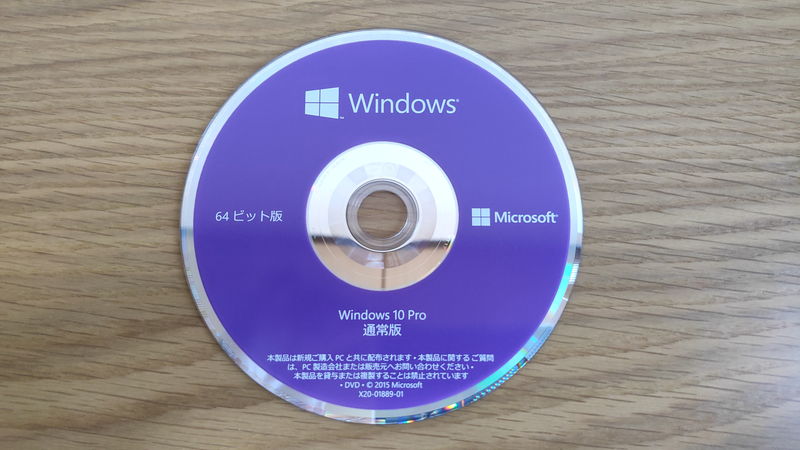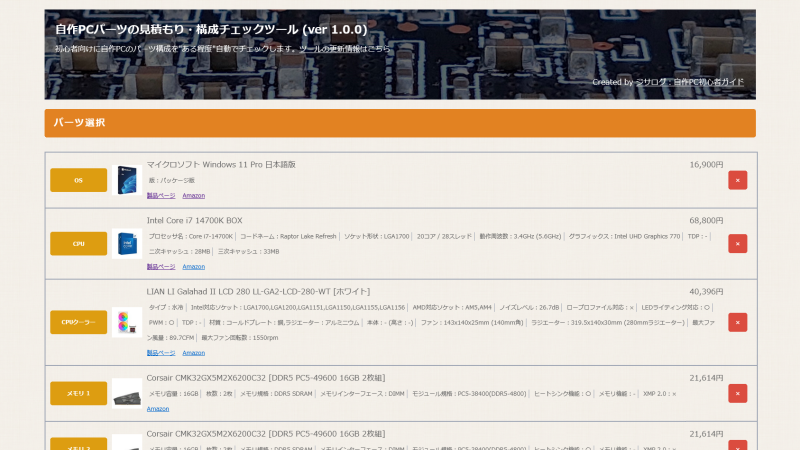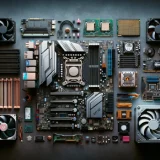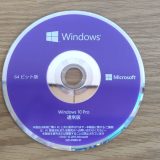The DSP version of Windows is a type of license sold together with specific hardware, mainly provided for custom PC users and small-scale systems.
A key feature of the DSP version is that it is priced lower than the regular (retail) version. However, it is tied to specific hardware (parts), so there are restrictions such as not being able to transfer it to another PC.
However, recently, the only advantage of the DSP version, which was its price, has disappeared, as the regular version is now cheaper. Therefore, there is currently no merit in choosing the DSP version.
If the DSP version is cheaper and becomes an option, be sure to understand the set sales with parts and the restrictions on transferring to another PC before purchasing. Otherwise, there is a risk of violating the license agreement, so caution is needed.
- Currently, the regular version is mainstream, not the DSP version
- The DSP version is provided for custom PC users and small-scale systems
- The DSP version is sold as a set with parts and has restrictions on PC transfer
- In the past, the DSP version was cheaper, but now the regular version is less expensive
- Purchase from a trusted seller
- Replacing parts may violate the license agreement
This article also explains the overall aspects of operating systems, such as types, versions and editions, types of installation media, and license types.
≫ Related article: How to Choose an OS for a Custom PC [Performance / Features / Compatibility]
Select PC parts and online stores to instantly generate an estimate, check compatibility, and calculate power requirements. You can save up to five different builds, making it easy to try out multiple configurations.
≫ Tool:PC Parts Estimation & Compatibility Check Tool
Table of Contents
About the DSP Version of Windows
Let’s look at the DSP version, one of the Windows license types, and see its features and price changes.
The DSP Version is One Type of License
Windows has various license types, but for general custom PC users, the options are usually the regular (retail) version or the DSP version.
The DSP version (Direct System Partner) is one type of Windows license, and is usually sold together with hardware parts.
The retail version can be purchased on its own, but the DSP version can only be purchased as a set with other parts. This is its biggest feature.
Therefore, when purchasing, for example, it is necessary to buy the DSP version of Windows together with a motherboard or SSD.
The DSP version of Windows is generally provided for custom PC users or small-scale systems, and is characterized by being less expensive than the regular retail version.
However, as will be explained later, recently the retail version has become cheaper, so the price advantage is gone.
The DSP license is tied to that particular PC, so transferring it to another PC is a license violation.
Because the DSP version provides a license for specific hardware, it is necessary to handle it carefully.
“In the Past,” the DSP Version Was Cheaper
Comparing the prices of the regular and DSP versions, the DSP version used to be cheaper, but recently the regular version has become less expensive, so the DSP version is rarely chosen.
The DSP version was popular because, although it had restrictions such as having to be purchased with other parts and not being transferable to another PC, it was priced lower than the regular version.
However, the DSP version was only cheaper until around the 2010s. For reasons that are not clear, the regular version is now less expensive.
The DSP version used to be a good choice for users who wanted to keep costs down while using Windows, but now that the price advantage is gone and only the restrictions remain, its popularity has declined and it is basically no longer chosen.
Differences Between the DSP Version and the Regular (Retail) Version
Let’s look at the differences between the DSP version and the regular version of Windows.
Scope of License Application
The scope of the Windows DSP license has several restrictions compared to the regular version.
The DSP version is intended to be sold together with specific hardware, and can only be installed and used on that hardware.
In other words, the DSP version of Windows can only be licensed for the PC or parts that were purchased as a set, and cannot be transferred to another PC.
Therefore, if a custom PC with a DSP version of Windows is built, the DSP version cannot be used for a second PC, and a new license must be purchased.
On the other hand, the regular (retail) version does not have such restrictions and can be installed on a different PC, allowing for more flexible use.
Sales Format
The Windows DSP version is mainly provided for custom PC users and small-scale systems, and is generally sold as a set with parts.
For example, it must be purchased together with a motherboard or power supply unit.
Because of these conditions, the DSP version cannot be purchased individually, and whether buying in-store or online, some other part must be purchased together.
On the other hand, the regular version can be purchased on its own.
That said, when building a custom PC, the OS is often purchased at the same time, so in practice, there is little difference from buying the DSP version as a set.
Of course, there may be cases where it is necessary to purchase only the OS for various reasons, so the regular version is more flexible.
Reinstallation
When reinstalling the DSP version of Windows, the original hardware configuration must be the same.
Because the DSP version is tied to specific hardware, if the hardware configuration is significantly changed, the license may become invalid.
In contrast, the regular (retail) version is more flexible and can be installed on a different PC. (However, it cannot be used on multiple PCs at the same time.)
Support Coverage
There are differences in support coverage between the DSP and retail versions of Windows.
The DSP version is sold together with specific hardware, so it is assumed to be used on that hardware.
Therefore, support is generally provided together with that hardware.
Specifically, support for the DSP version is often provided by the retailer or hardware manufacturer, and direct support from Microsoft is limited.
On the other hand, the retail version can be purchased on its own and direct support from Microsoft is available.
Important Points About the Windows DSP Version
This section explains important points regarding the purchase and use of the Windows DSP version.
![]() Ken
Ken
Selling the DSP Version Alone Is Strictly a License Violation
Selling the Windows DSP version on its own is a violation of the license agreement.
The DSP version is a license type that is supposed to be sold together with specific hardware, and when building a new PC, it must be purchased together with that PC’s parts.
Strictly speaking, the party violating the license agreement is not the buyer or user, but the reseller, so the responsibility lies with the reseller.
However, Microsoft should be able to track which reseller received which license, so in the worst case, the license could be invalidated or excluded from support, which could affect the buyer as well.
![]() Ken
Ken
If the license is invalidated, it seems that the PC can still boot and log in, but a notification will appear on the desktop that it is not activated, and some features, personalization settings, security, or OS updates may be restricted.
![]() Ken
Ken
Cases of the DSP version being sold alone are often seen with resellers that are not well-known or have not been heard of, especially in online stores.
In particular, if there is no process to select other parts as a set before reaching the purchase screen after choosing the DSP version of Windows, it is likely being sold alone, so avoid purchasing in such cases.
It Is Safe to Buy from Microsoft or Well-Known Resellers
When purchasing the Windows DSP version, it is important to buy from a trusted seller.
Buying from Microsoft or a well-known reseller helps avoid counterfeit or illegal licenses.
Especially when buying online, it is important to use official websites or certified online stores to ensure that genuine products are obtained safely.
Furthermore, purchasing from an authorized seller provides support and warranty, so it is reassuring if any trouble occurs.
For example, well-known resellers such as PC Koubou, Dospara, and Bic Camera obtain products through official channels, so the risk of buying counterfeit or defective products is low, and after-sales support is also substantial.
If Windows OS is purchased from an unreliable seller, especially on sites like Amazon where the seller is not well-known, there is a possibility that the license is not genuine. (Although not all cases are like this…)
If there is a license violation or malicious intent from the seller, malware or spyware could be embedded, leading to personal information being stolen or the system being tampered with.
Also, sometimes licenses intended for corporate OEM use are misused, so caution is needed.
Therefore, purchasing Windows OS from a trusted seller helps avoid these risks and allows for safe use.
About License Violations When Replacing Parts
When using the Windows DSP version, it is important to be aware of the possibility of license violations when replacing parts.
The DSP version of Windows is sold tied to specific hardware, so it is intended to be used together with that hardware.
In particular, it seems to be tied to the motherboard, and replacing it may invalidate the license.
When I first built a custom PC around 2010, I knew that the DSP version was sold as a set with parts, but I did not know that changing parts was not allowed, so I replaced or added storage when it failed.
However, since I did not change the motherboard at that time, there was no license invalidation or notification, and I was able to use it normally.
Recently, when building custom PCs, I use the regular version instead of the DSP version due to the lack of price advantage and restrictions, so I do not know the current situation. However, if replacing parts with the DSP version, be aware of these risks and proceed at your own responsibility. (It is not recommended…)
Summary: The Regular Version Is Now Cheaper, So the DSP Version Is Not an Option
This article explained the features, price changes, differences from the regular version, and license details of the Windows DSP version.
Here is a summary of the key points.
- Currently, the regular version is mainstream, not the DSP version
- The DSP version is provided for custom PC users and small-scale systems
- The DSP version is sold as a set with parts and has restrictions on PC transfer
- In the past, the DSP version was cheaper, but now the regular version is less expensive
- Purchase from a trusted seller
- Replacing parts may violate the license agreement
In the past, many users chose the DSP version because, despite its restrictions, it had a significant price advantage. However, now that the regular version is cheaper, the number of users choosing the DSP version has decreased along with the price change.
Therefore, if the price of the DSP version returns to previous levels and it becomes an option when purchasing Windows OS in the future, be sure to understand the differences between the regular and DSP versions and the license details before making a choice.
This article also explains the overall aspects of operating systems, such as types, versions and editions, types of installation media, and license types.
≫ Related article: How to Choose an OS for a Custom PC [Performance / Features / Compatibility]
Select PC parts and online stores to instantly generate an estimate, check compatibility, and calculate power requirements. You can save up to five different builds, making it easy to try out multiple configurations.
≫ Tool:PC Parts Estimation & Compatibility Check Tool
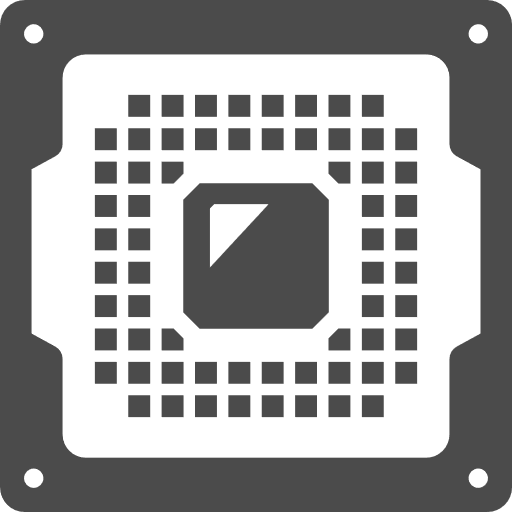 ZisaLog: Beginner’s Guide to Building a Custom PC
ZisaLog: Beginner’s Guide to Building a Custom PC 